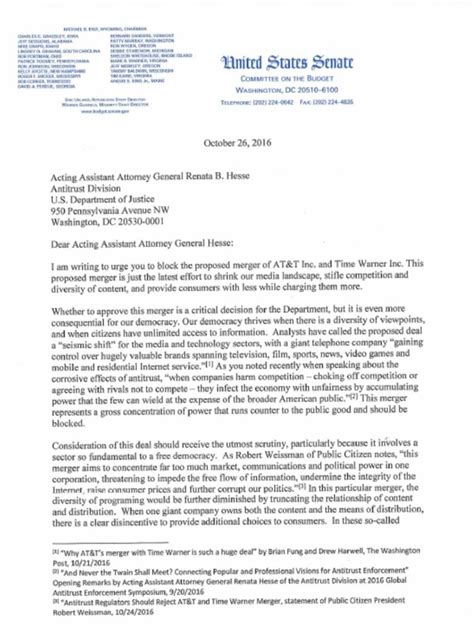The notion of a more equitable society has been a cornerstone of political discourse for centuries, with various ideologies and leaders emerging to champion the cause. One such figure is Bernie Sanders, a senator from Vermont who has been a vocal advocate for progressive policies and social justice. In his extensive career, Sanders has articulated a wide range of plans and proposals aimed at addressing the deep-seated issues plaguing the United States, from economic inequality and access to healthcare, to climate change and education reform.
At the heart of Sanders’ political philosophy is the belief that the current economic system is rigged against the average American, with the wealthiest individuals and corporations wielding disproportionate influence over the political process. To combat this, Sanders has proposed a series of measures designed to reduce economic inequality, including a federal jobs guarantee, free college tuition, and a $15 minimum wage. These policies are grounded in the idea that every individual deserves access to the resources and opportunities necessary to thrive, regardless of their background or socioeconomic status.
One of the most contentious issues in modern American politics is healthcare. The Affordable Care Act, passed during the Obama administration, represented a significant step towards expanding access to healthcare for millions of Americans. However, Sanders has argued that this law does not go far enough, and has instead proposed a Medicare-for-All system that would provide comprehensive, universal healthcare to every American. This plan would be funded through a combination of sources, including increased taxes on the wealthy and a reduction in administrative costs.
Climate change is another pressing issue that has garnered significant attention in recent years. Sanders has been a vocal critic of the fossil fuel industry and has proposed a comprehensive plan to transition the United States to renewable energy sources. This plan, known as the Green New Deal, would involve a massive investment in solar and wind power, as well as energy-efficient infrastructure and green jobs training programs. The goal of this initiative is to reduce the United States’ carbon footprint and create a more sustainable future for generations to come.
In addition to these proposals, Sanders has also been a strong advocate for education reform. He believes that every American deserves access to high-quality education, from preschool to college, and has proposed a series of measures to make this a reality. These include increasing funding for public schools, reducing student loan debt, and making college tuition free for all Americans. By investing in education, Sanders argues, we can create a more informed, equitable, and prosperous society.
Despite the ambitious nature of these proposals, Sanders’ plans are grounded in a deep understanding of the challenges facing the United States. He has spent decades studying the issues, listening to the concerns of everyday Americans, and developing solutions that are both practical and progressive. As such, his plans represent a compelling vision for a more just and equitable society, one that prioritizes the needs of people over the interests of corporations and the wealthy elite.
FAQ Section
What is Bernie Sanders' stance on economic inequality?
+Bernie Sanders believes that the current economic system is rigged against the average American and has proposed measures such as a federal jobs guarantee, free college tuition, and a $15 minimum wage to reduce economic inequality.
How does Bernie Sanders plan to address climate change?
+Sanders has proposed a comprehensive plan known as the Green New Deal, which involves a massive investment in renewable energy sources, energy-efficient infrastructure, and green jobs training programs to reduce the United States' carbon footprint.
What is Bernie Sanders' proposal for healthcare reform?
+Sanders has proposed a Medicare-for-All system that would provide comprehensive, universal healthcare to every American, funded through increased taxes on the wealthy and a reduction in administrative costs.
How does Bernie Sanders plan to make college more affordable?
+Sanders has proposed making college tuition free for all Americans, as well as reducing student loan debt and increasing funding for public schools.
What is the core of Bernie Sanders' political philosophy?
+The core of Bernie Sanders' political philosophy is the belief that every individual deserves access to the resources and opportunities necessary to thrive, and that the current economic and political systems must be reformed to achieve this goal.
How does Bernie Sanders plan to fund his proposed policies?
+Sanders plans to fund his policies through a combination of sources, including increased taxes on the wealthy, a reduction in administrative costs, and a more progressive tax system.
Comparative Analysis: Economic Policies
When comparing Bernie Sanders’ economic policies to those of other political figures, it becomes clear that his approach is uniquely focused on addressing the root causes of economic inequality. While some politicians may propose incremental reforms or tweaks to the existing system, Sanders is advocating for a fundamental transformation of the economic landscape. This includes not only policies like a federal jobs guarantee and free college tuition but also a broader shift in how we think about work, wealth, and the role of government in the economy.
One of the key distinctions between Sanders’ approach and that of more conservative politicians is the emphasis on collective action and government intervention. Sanders believes that the market, left to its own devices, will inevitably lead to greater inequality and exploitation, and that therefore, the government has a critical role to play in regulating the economy and ensuring that everyone has access to the resources they need to thrive. This is in stark contrast to the laissez-faire approach advocated by many conservatives, which holds that the government should interfere as little as possible in economic affairs.
Conceptual Exploration: Theoretical Underpinnings
At a theoretical level, Sanders’ policies can be seen as an expression of a broader critique of neoliberalism and the Washington Consensus. Neoliberalism, which emerged in the 1970s and 1980s, is characterized by a belief in the efficiency of markets, the importance of individual freedom, and the limited role of government in economic affairs. However, critics argue that this ideology has led to increased inequality, decreased social mobility, and a decline in the overall well-being of the majority of the population.
Sanders’ policies, on the other hand, can be seen as an attempt to move beyond the neoliberal paradigm and towards a more social democratic or democratic socialist model. This approach emphasizes the importance of collective action, social welfare, and government intervention in the economy to ensure that everyone has access to the resources they need to thrive. It also recognizes that the market, while a powerful tool for generating wealth, is not a perfect or self-regulating system, and that therefore, some degree of government oversight and regulation is necessary to prevent exploitation and ensure fairness.
Future Trends Projection: Emerging Developments
As we look to the future, it is clear that the policies proposed by Bernie Sanders will continue to play a major role in shaping the political landscape. The issues he has highlighted, from economic inequality and climate change to healthcare and education reform, are not going away, and will likely only become more pressing in the years to come.
In terms of emerging developments, one of the most significant trends is the growing awareness of the need for systemic change. More and more people are coming to realize that the current economic and political systems are not working for everyone, and that a more fundamental transformation is needed. This is reflected in the growing popularity of progressive politicians and policies, as well as the increasing visibility of social movements and activism around issues like climate change, racial justice, and economic inequality.
Another emerging trend is the recognition of the importance of intersectionality and the need for policies that address the interconnected nature of social and economic issues. This means recognizing that issues like economic inequality, climate change, and healthcare are not separate or distinct, but are instead intimately connected and must be addressed in a holistic and integrated way.
Decision Framework: Making Informed Choices
For individuals looking to make informed choices about the policies and politicians they support, there are several key factors to consider. First and foremost, it is essential to educate oneself about the issues and the policies being proposed. This involves not only reading and listening to news and analysis but also engaging with the underlying research and data that informs these policies.
Second, it is crucial to consider the values and principles that guide one’s decision-making. What kind of society do you want to live in? What are your priorities in terms of economic, social, and environmental justice? How do you think the government should balance the needs of different groups and individuals?
Finally, it is essential to think critically about the information and arguments presented by different politicians and policymakers. This involves evaluating the evidence and data that supports their claims, as well as considering the potential consequences and trade-offs of their policies. By taking a thoughtful and informed approach to decision-making, individuals can make a more meaningful contribution to the democratic process and help shape a more just and equitable future.
Historical Evolution: Development of Concepts
The concepts and policies advocated by Bernie Sanders have a long and complex history that stretches back decades. One of the key influences on Sanders’ thought is the civil rights movement of the 1950s and 1960s, which highlighted the need for social and economic justice and the importance of collective action in achieving these goals.
Another significant influence is the labor movement, which has a long history of advocating for workers’ rights, better wages, and improved working conditions. The labor movement has also played a crucial role in shaping the social and economic policies of the United States, from the establishment of the minimum wage and social security to the creation of programs like Medicare and Medicaid.
In terms of the development of specific policies, Sanders’ proposals for a federal jobs guarantee, free college tuition, and Medicare-for-All have their roots in the New Deal policies of the 1930s and the Great Society programs of the 1960s. These initiatives recognized the importance of government intervention in the economy and the need for collective action to address social and economic problems.
Technical Breakdown: Understanding Policy Details
To truly understand the policies proposed by Bernie Sanders, it is essential to delve into the technical details and explore how they would work in practice. For example, the Medicare-for-All system would involve a significant expansion of the existing Medicare program, which currently provides healthcare coverage to seniors and individuals with disabilities.
This would involve not only increasing funding for the program but also streamlining administrative processes, reducing waste and inefficiency, and ensuring that everyone has access to comprehensive, high-quality care. The federal jobs guarantee, on the other hand, would involve the creation of a new program that would provide employment opportunities for anyone who wants to work, regardless of their background or skills.
The Green New Deal, which aims to transition the United States to renewable energy sources and reduce carbon emissions, would involve a massive investment in solar and wind power, as well as energy-efficient infrastructure and green jobs training programs. This would not only help to reduce the United States’ carbon footprint but also create new economic opportunities and improve public health.
Myth vs. Reality: Addressing Misconceptions
One of the challenges in discussing Bernie Sanders’ policies is the prevalence of myths and misconceptions that can distort the debate and make it harder to have a nuanced and informed discussion. For example, some critics argue that Sanders’ policies are too expensive or unrealistic, or that they would lead to a significant increase in taxes or a decline in economic growth.
However, a closer examination of the evidence and data reveals that these claims are not supported by the facts. For example, studies have shown that a Medicare-for-All system could actually reduce healthcare costs and improve health outcomes, while also increasing economic efficiency and reducing administrative waste.
Similarly, the idea that Sanders’ policies would lead to a significant increase in taxes is not entirely accurate. While it is true that some of Sanders’ proposals, such as the federal jobs guarantee and free college tuition, would require increased funding, this could be achieved through a combination of sources, including increased taxes on the wealthy, a reduction in administrative costs, and a more progressive tax system.
Conclusion
In conclusion, the plans and proposals articulated by Bernie Sanders represent a compelling vision for a more just and equitable society. By addressing the root causes of economic inequality, climate change, and social injustice, Sanders’ policies offer a comprehensive and integrated approach to creating a better future for all Americans.
Through a combination of government intervention, collective action, and social welfare programs, Sanders aims to create a society that is more democratic, more equal, and more just. While there are certainly challenges and complexities to be navigated, the underlying principles and values that guide Sanders’ policies are closely aligned with the values of democracy, fairness, and human dignity.
As we move forward, it is essential to continue the conversation about the policies and proposals that will shape our collective future. By engaging with the ideas and values that underpin Sanders’ vision, we can work towards creating a more informed, more compassionate, and more equitable society that truly reflects the needs and aspirations of all Americans.



